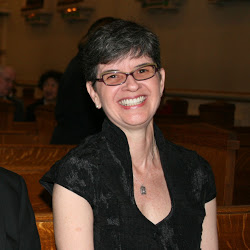Before the Time of Quarantine
 Morning the family comes to take the man home,
Morning the family comes to take the man home,
not knowing he is not the same as yesterday.
He is dying an unexpected death.
What to do? Feed the bodies at least, I think.
Cafeteria coffee, breakfast burritos.
I hold the wife’s hand.
We were going to grow old together,
she says, he and I in our cabin in the woods.
After noon rounds, the man’s heart stops.
Doctors, nurses, everyone right there to bring him back,
as the family wishes. What would the man want?
The heart restarts, the machines take note.
The wife and son collapse into each other.
On and on goes the day. Three times the heart stops.
Three times restarted. Good God, let him go,
I do not say aloud. Finally
the wife says enough. It is done.
Mourning the family comes to send the man home:
nieces, nephews, in-laws, cousins, the mother, a sister
20 at least, crowding the room in grief, for prayers.
We circle the bed, hold hands, bow our heads.
Freed of wires and tubes, the man looks almost human.
Our Father, I begin. Hail Mary follows.
Prayers full of grace, consoling in their familiarity,
nevermind whether one believes anymore.
Invited to tell stories and add their own prayers,
the family takes turns telling tales,
touching, kissing the dead man’s face.
How much they will miss him, they say,
how much they want to be with him,
live like him. A good man.
Prayers crowd the room,
begging for grace to live without the beloved
in the time before quarantine
when we did not die alone.
Jennifer Reek is a chaplain at Christus St. Vincent Medical Center in Santa Fe, New Mexico. She has a Master of Divinity from Regis College, the Jesuit Faculty at the University of Toronto. She is the author of A Poetics of Church: Reading and Writing Sacred Spaces of Poetic Dwelling (Routledge, 2018), a work developed from her PhD research at the Centre for Literature, Theology and the Arts, University of Glasgow. She can be contacted at jenniferreek@gmail.com.
